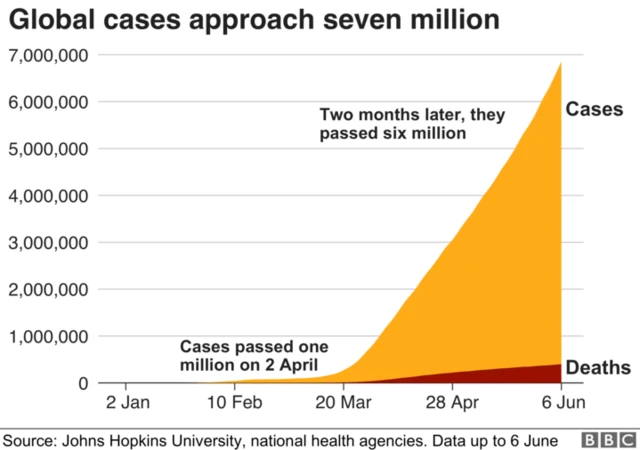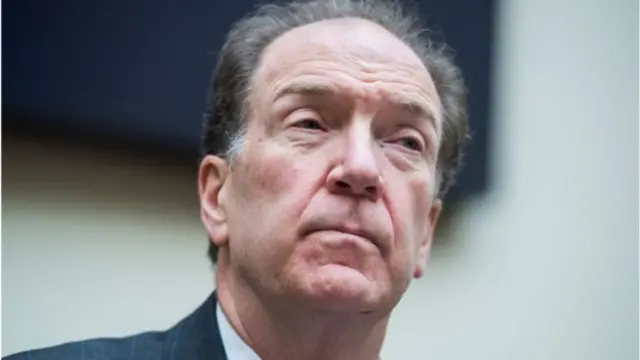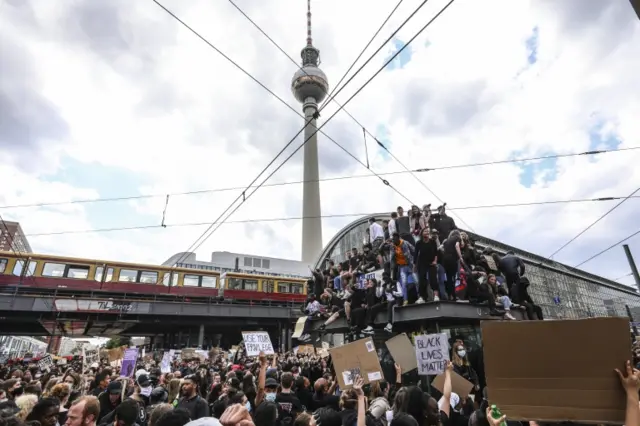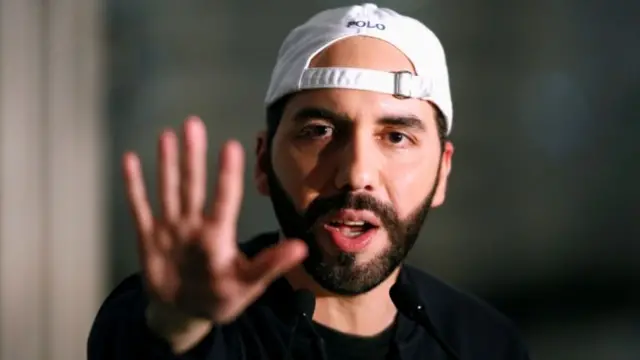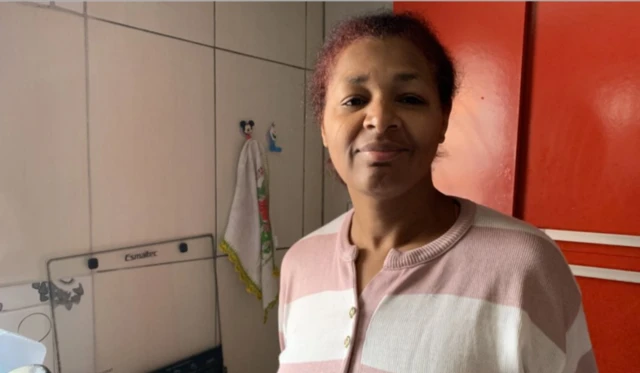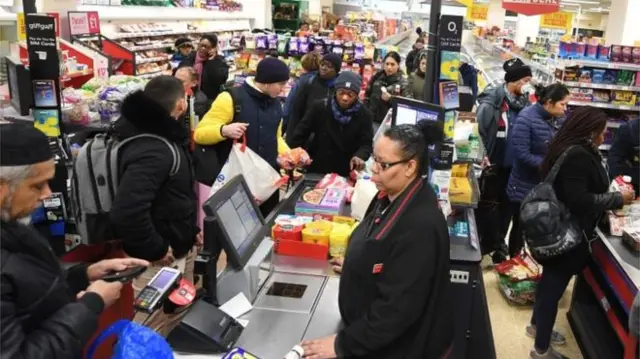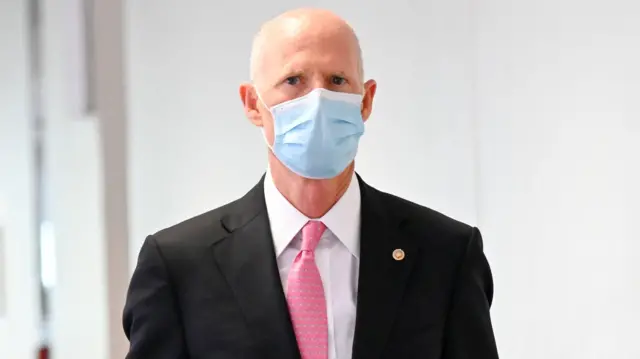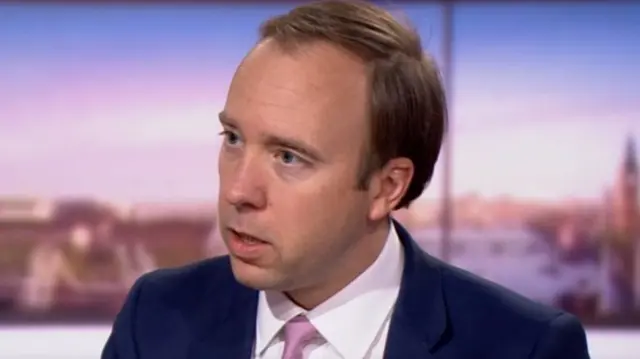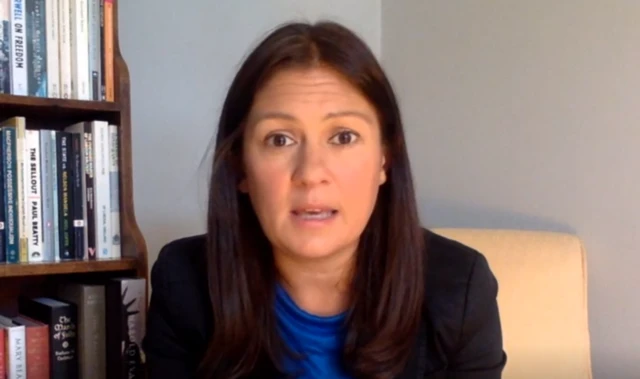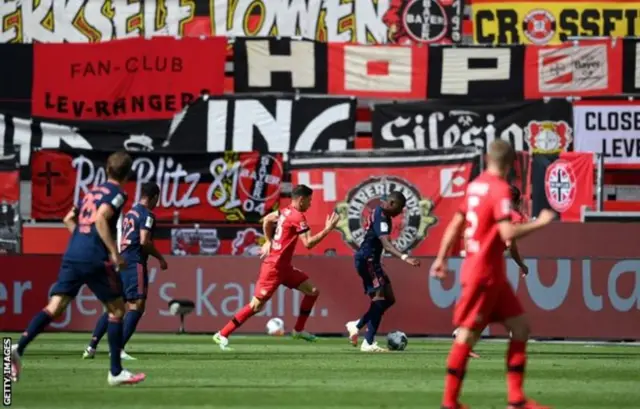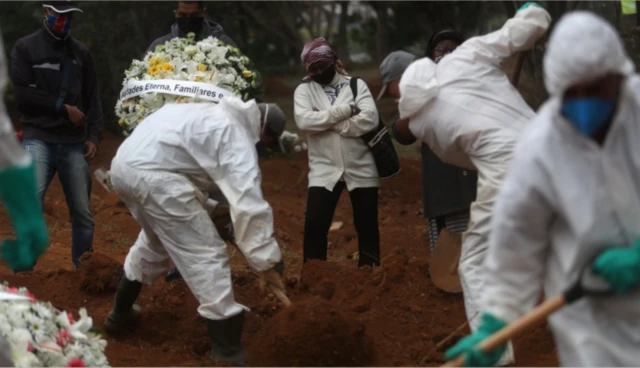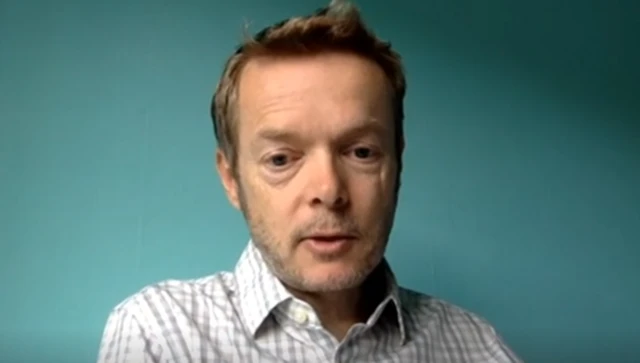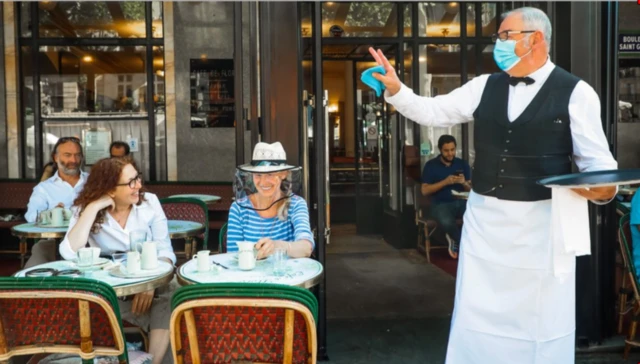Churches reopening is 'great blessing' - Archbishoppublished at 12:28 BST 7 June 2020
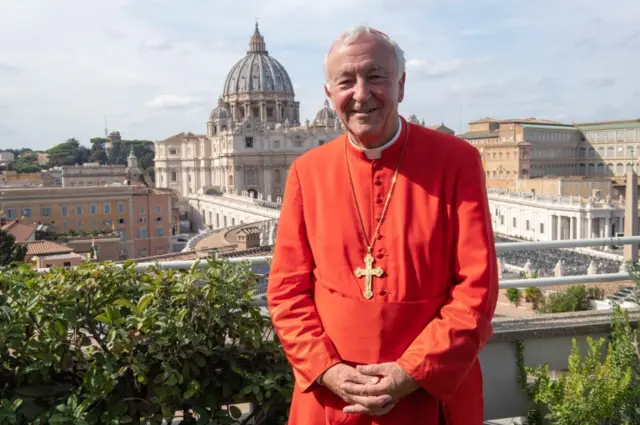 Image source, Reuters
Image source, ReutersCardinal Vincent Nichols, the Archbishop of Westminster, says it is a "great blessing" that English churches will soon be able to open their doors to worshippers again.
The government is set to announce next week that all places of worship in England can allow private individual prayer from 15 June.
Nichols said:, external "Not every Catholic church will be open on 15 June. Local decisions and provision have to lead this process. But it is a great blessing for individuals and for the benefit of all in society, that church doors will again be open to all who long to pray there for the peace and grace we need today."
According to The Sunday Times, , externalthe government might soon also allow outdoor weddings, currently limited to Jews and Quakers. The report also claims restrictions on weddings and funerals will be eased to enable up to 10 people to attend such occasions indoors from early July.
